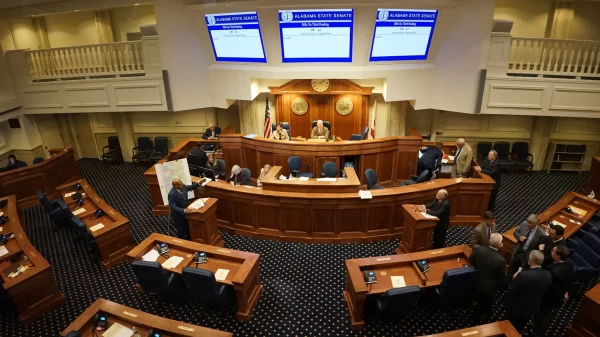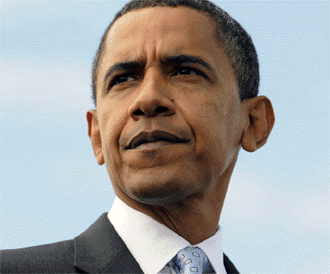By Brandon Moseley
Alabama Political Reporter
The United States economy continues to move farther away from its free market roots and more towards a command economy run out of Washington. Again circumventing an increasingly less relevant U.S. Congress, President Obama signed an Executive Order Thursday ordering American manufacturers to increase the energy efficiency of their facilities.
President Obama said, “Today, we are taking another step to strengthen American manufacturing by boosting energy efficiency for businesses across the nation. This action will cut costs, increase efficiency, and help our businesses create strong, middle class jobs. We’ll continue to do everything we can to put more people back to work and build an economy that lasts.”
The President’s written release said that the order will: “Facilitate investments in industrial energy efficiency that will strengthen American manufacturing and help create jobs. These efforts to boost industrial energy efficiency, including combined heat and power systems, can save manufacturers as much as $100 billion in energy costs over the next decade, improving their bottom lines and strengthening U.S. manufacturing competitiveness. These types of efficiency measures will reduce energy consumption and reduce harmful emissions.”
President Obama acknowledged that manufacturing facilities have become more energy efficient over time, but noted that, “There is an opportunity to accelerate and expand this trend with investments that reduce energy use through more efficient manufacturing technologies and processes, such as the expanded use of efficient, on-site heat and power generation, known as combined heat and power (CHP).”
President Obama’s written release said that this latest executive order builds on previous efforts by the Obama Administration to upscale private sector investments in energy efficiency in homes, buildings, and factories including the Better Buildings Initiative and investments upgrading homes around the United States.
The order also directs the Departments of Energy, Commerce, and Agriculture, as well as the Environmental Protection Agency (EPA), to coordinate actions at the Federal level while providing policy and technical assistance to states to promote investments in industrial energy efficiency.
The Executive Order also orders federal agencies to foster regional workshops to foster a national dialogue encouraging the adoption of best practice policies and investment models that overcome barriers to investment. Obama also ordered federal agencies to use their authority to “support these investments.”
The President’s Order also set a new national goal of 40 gigawatts of new combined heat and power capacity by 2020. That would be a 50% increase over today’s existing capacity.
The administration claims that meeting this goal would save energy users $10 billion per year, and would result in, “$40 to $80 billion in new capital investment in manufacturing and other facilities that would create American jobs, and would reduce emissions equivalent to 25 million cars.”
Critics of the Obama administration’s heavy handed energy policies argue that the cheapest and most efficient method of meeting America’s energy goals would be to encourage more investment in domestic sources of oil, coal, and natural gas.













































